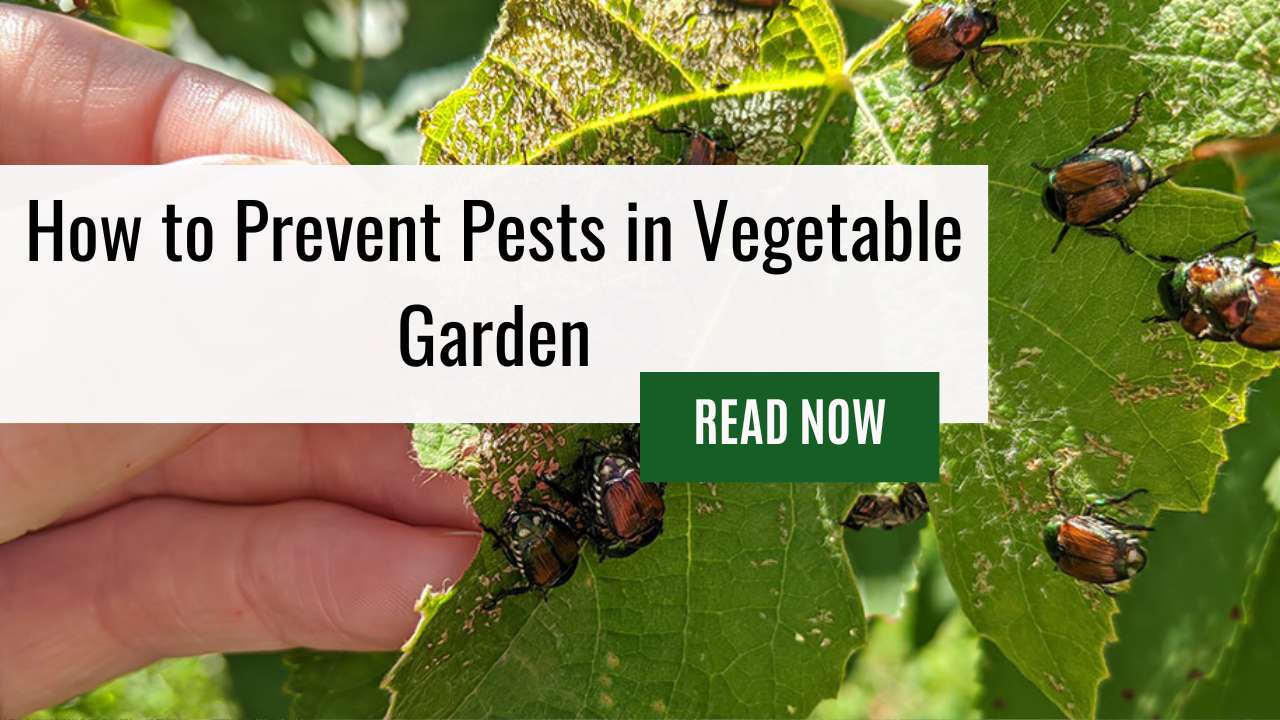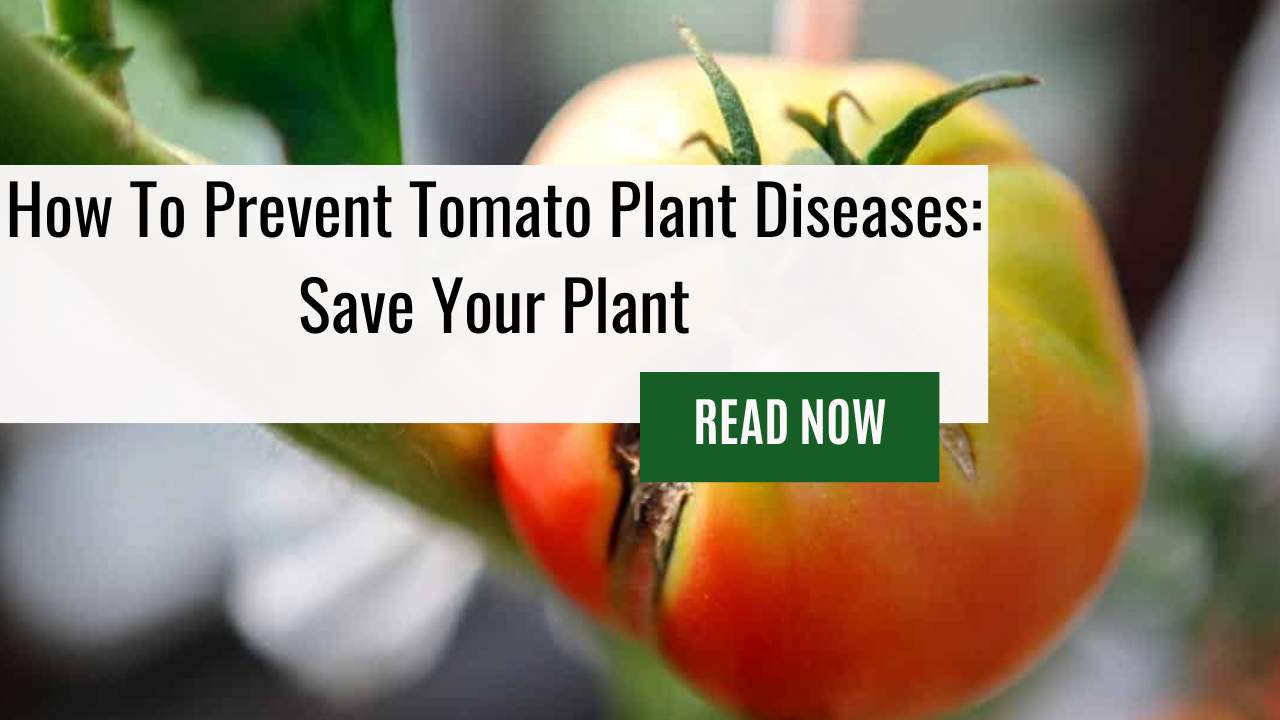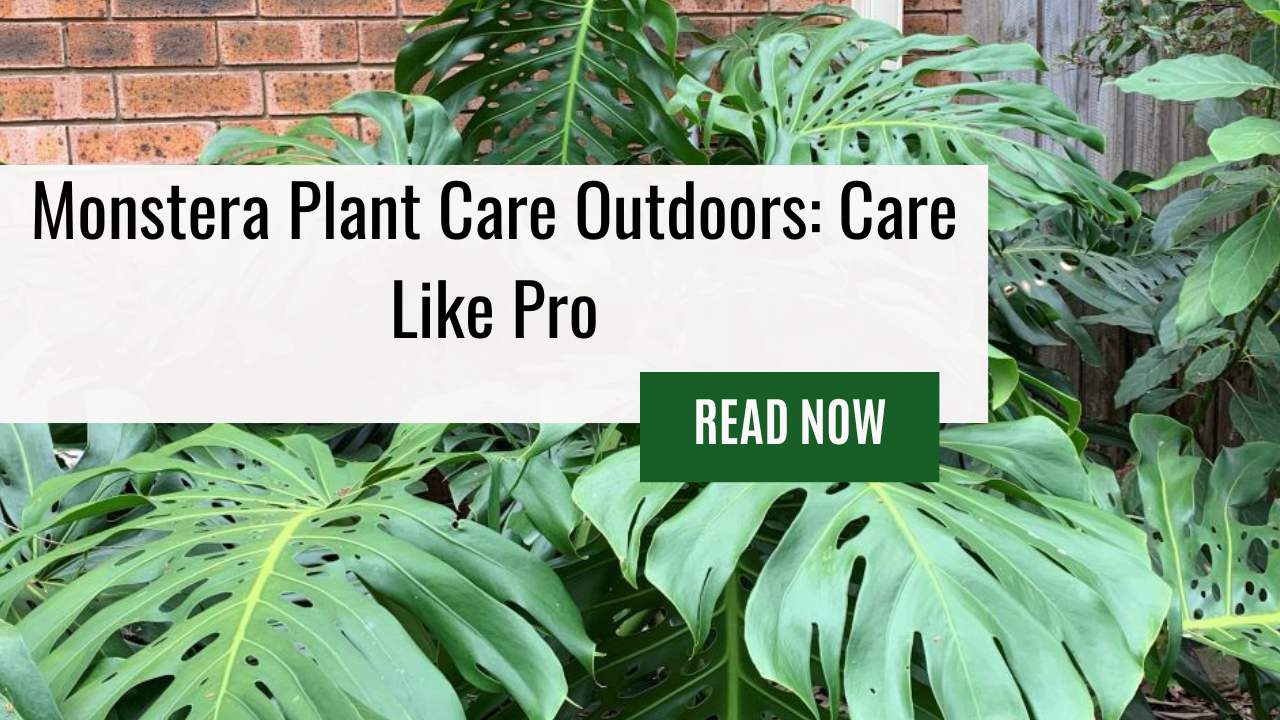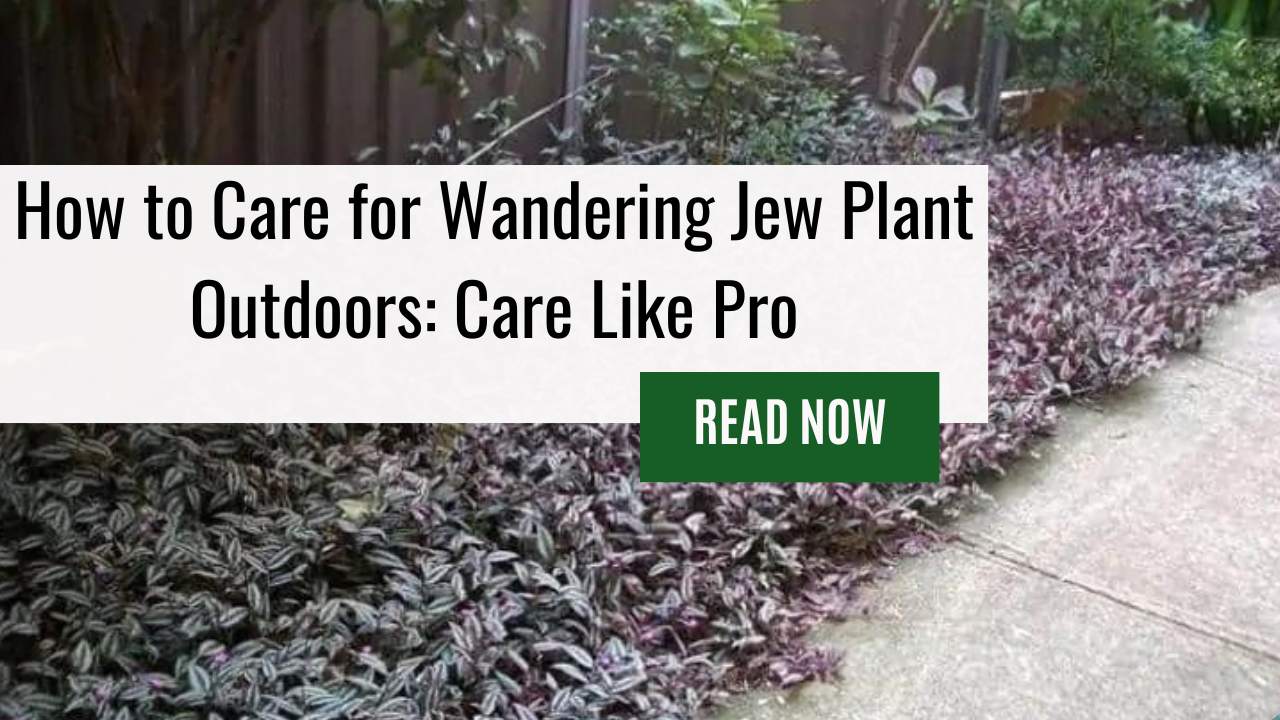Are you tired of watching your hard-earned vegetable garden fall prey to pests?
Do you want to enjoy a bountiful harvest without the constant worry of insect infestations or rodent invasions?
Look no further – in this article, we’ll cover some tried and true methods for preventing pests from wreaking havoc on your beloved plants.
First and foremost, it’s essential to understand that prevention is key.
Waiting until after an infestation has taken hold is much more difficult (and often less effective) than taking proactive measures before any problems arise.
By implementing a few simple strategies, you can create an environment that discourages pests from setting up camp in your garden.
So grab your gloves and let’s get started!
Understanding Common Garden Pests – Aphids, Slugs, Caterpillars, Snails, Rodents, and More
Have you ever had the experience of eagerly waiting for your vegetables to mature, only to find that they have been devoured by garden pests?
It’s a frustrating and disheartening feeling. But fear not! With proper pest control measures in place, you can prevent garden pests from ruining your vegetable garden.
Before diving into pest control methods, it’s important to understand common garden pests.
There are numerous types of insects and animals that can feast on your veggies, such as aphids, slugs, snails, caterpillars, rodents, and more.
Each type of pest has its own unique characteristics and habits that make them particularly pesky.
In the following sections, we will discuss how to identify these common pests and ways to keep them at bay. But first, let’s talk about why preventing pests is crucial for a successful vegetable garden.
Choosing Pest-Resistant Varieties
Now that we have a better understanding of common vegetable garden pests, it’s time to take action and prevent these unwanted visitors from destroying our hard work.
One effective method is by choosing pest-resistant varieties when planning your garden. This means selecting plants that are naturally resistant or tolerant to specific pests.
Before planting, research which vegetables are most susceptible to certain pests in your area and choose varieties that have been bred for resistance.
For example, if you struggle with aphids, look for broccoli or kale varieties labeled as ‘aphid-resistant.’
By choosing pest-resistant varieties, you’ll not only reduce the risk of an infestation but also decrease the need for chemical pesticides.
Besides selecting the right plants, there are other non-toxic pest control methods you can use such as crop rotation, intercropping with companion plants, using row covers, and handpicking insects off of leaves.
However, even with these preventative measures in place, some pest damage may still occur.
In the next section, we’ll explore how companion planting for pest control can further enhance your efforts in keeping your vegetable garden healthy and thriving.
Companion Planting For Pest Control
So, you’ve tried everything to get rid of those pesky garden pests in your vegetable garden. But alas, nothing seems to work!
Fear not my friends, for there is a solution that doesn’t involve any witchcraft or sacrificing your firstborn child: companion planting for pest control.
Yes, I know what you’re thinking – ‘Companion planting? That sounds like something only hippies do!’ But trust me when I say it’s a legitimate method for keeping those critters at bay.
Companion planting involves strategically placing certain plants next to each other so they can benefit from one another.
In this case, we want to pair up vegetables that attract beneficial insects (like ladybugs and lacewings) with ones that repel common garden pests (like marigolds and garlic).
By doing so, we create an environment where our veggies can thrive without having to constantly battle against unwanted guests.
Using Row Covers And Netting on Your Vegetable Garden
Companion planting is one effective method to prevent garden pests in your vegetable garden. But if you want more protection, consider using row covers and netting.
These physical barriers can effectively block out insects and other pests from attacking your plants. Row covers are made of lightweight fabrics that allow sunlight, air, and water to penetrate while keeping bugs away.
They come in different types such as floating row covers or hoop houses, which can be draped over the plants or installed on top of a frame respectively.
With proper installation, these covers can also help regulate temperature and humidity levels for optimal growth conditions.
Netting, on the other hand, is ideal for protecting fruits and vegetables that are already bearing fruit but susceptible to bird damage.
A mesh size of 1/4 inch is recommended to keep small birds at bay while still allowing pollinators access to reach flowers.
By incorporating both companion planting and physical barriers like row covers and netting into your gardening routine, you’ll have better chances of preventing pest infestations in your vegetable garden.
However, it’s equally important not to forget about attracting beneficial insects as part of your overall strategy for natural pest control.
Attracting Beneficial Insects to Prevent Garden Pests
Preventing garden pests naturally is an essential aspect of maintaining a thriving vegetable garden.
While there are various pest control methods available, relying on integrated pest management techniques can significantly reduce your reliance on chemical pesticides that may harm beneficial insects and pollinators.
One effective approach to controlling pests in the garden is to encourage beneficial insects like ladybugs, lacewings, and praying mantises.
Beneficial insects play a vital role in controlling unwanted pests by feeding on them or laying their eggs near areas where pests are likely to congregate.
To attract these helpful creatures, plant flowers such as daisies and marigolds throughout your garden.
Also, provide shelter for beneficial insects by incorporating nesting boxes or leaving piles of twigs and leaves around the edges of your plot.
By encouraging natural predators to take care of your pest problems, you’ll be able to create a healthy ecosystem within your garden while preventing damage caused by harmful chemicals.
In the next section, we will explore how creating healthy soil can further support the growth of your vegetables.
Creating Healthy Soil – How Organic Pesticides Help!
Having healthy soil is like having a strong foundation for your vegetable garden. And to prevent garden pests from infesting your vegetable garden, it’s important to focus on building healthy soil.
Start by adding organic matter such as compost or well-rotted manure to improve the structure of the soil and increase its nutrient content.
And, using organic pesticides can help control any remaining pests without harming the beneficial insects that keep your garden healthy.
As you work towards creating healthy soil, keep in mind that crop rotation is also an effective way to prevent garden pests. By rotating crops each year, you limit the buildup of pests and diseases specific to certain plants.
In the next section, we’ll explore how this simple step can make all the difference in maintaining a thriving vegetable garden.
Preventing Pests Through Crop Rotation
As we’ve learned in the previous section, having nutrient-rich soil is essential for maintaining a healthy vegetable garden.
But even with great soil quality, you may still encounter unwanted guests like garden pests.
The good news is that there are several ways to prevent these pests from taking over your vegetable garden and destroying all of your hard work.
One effective method of pest control is crop rotation. By rotating crops each year, you can disrupt the life cycle of many common pests and reduce their numbers.
Besides, different vegetables have specific nutrient needs, so rotating crops can also help maintain balanced soil fertility.
When planning your crop rotation strategy, be sure to group plants based on their families as some pests target particular plant groups more than others.
With careful planning and implementation, crop rotation can be an excellent way to prevent garden pests and keep your vegetable garden thriving.
As important as it is to plan out strategies for preventing pests in your vegetable garden, regular maintenance tasks like weeding and pruning should not be overlooked either.
These simple practices go a long way toward keeping your garden clean and free from any potential homes or hiding spots for pesky critters.
A well-pruned garden allows air circulation which reduces humidity levels that attract insects while removing weeds eliminates alternate food sources that could distract them away from your valuable veggies!
Next up, let’s explore how regular weeding and pruning play a crucial role in maintaining a bountiful vegetable harvest.
Regular Weeding And Pruning – The Key to Preventing Vegetable Garden Pests!
One of the most important things you can do to prevent garden pests in your vegetable garden is regular weeding and pruning.
This means keeping your garden free of weeds and making sure that any plants that are overgrown or diseased are pruned back.
By doing this, you’re removing potential hiding places for pests and ensuring that your plants have plenty of space to grow healthy.
Weeds can be a major source of food for many types of pests like aphids, mites, and caterpillars. Also, they provide shelter for rodents and other animals that may eat your crops.
Make it a habit to check your garden regularly for weeds and remove them as soon as possible.
As for pruning, make sure to remove any dead or diseased branches from your plants since these can attract insects that will harm the rest of the plant.
Remember: prevention is key as for managing pests in your vegetable garden!
Now that you know how important regular weeding and pruning are in preventing garden pests, let’s talk about proper watering techniques.
Proper Watering Techniques
Watering is a crucial part of maintaining a healthy vegetable garden. Not only does it provide your plants with the necessary hydration to grow and produce, but it can also help prevent pests from invading your garden.
When you water your plants correctly, they become stronger and better equipped to fight off any potential invaders.
One common mistake that many gardeners make when watering their plants is overwatering. Overwatered soil can lead to root rot or attract pests such as fungus gnats, which thrive in damp environments.
To prevent pest infestations caused by overwatering, make sure to water deeply but less frequently.
This allows the soil to dry out slightly between watering sessions, making it more difficult for pests to establish themselves in your garden.
By using proper watering techniques, you are taking an important step towards organic pest control and pest prevention in your vegetable garden.
As important as proper watering techniques are for preventing vegetable garden pests, sometimes additional measures need to be taken.
In the next section, we will explore natural repellents that can further protect your garden from unwanted visitors.
Using Natural Repellents
One effective way to control pests in your vegetable garden naturally is by using natural repellents.
There are a variety of plants that have insect-repelling properties, such as marigolds, garlic, and chives. Planting these around your vegetables can help keep unwanted insects away.
Another option is to make your own organic pesticides using ingredients like neem oil or hot pepper spray. These can be easily made at home and applied directly to the affected areas of your garden.
Not only will this method save you money, but it’s also better for the environment than traditional chemical pesticides.
By utilizing natural repellents and organic pesticides, you can effectively control pests in your vegetable garden without harming beneficial insects or compromising the quality of your produce.
To further ensure the health of your garden, it’s important to remove infected plants promptly. Infected plants not only attract more pests but they can also spread diseases throughout your entire garden.
The best course of action is to uproot and dispose of any infected plants immediately.
This will help prevent further damage and allow your healthy plants to thrive.
Removing Infected Plants
As a gardener, you will encounter pests in your vegetable garden at some point. It is essential to control pests naturally and prevent pest problems early on.
However, if you have already noticed infected plants, it would be best to remove them from the garden immediately.
Removing infected plants can help prevent the spread of diseases and pests among other healthy plants in your garden.
You can do this by uprooting the entire plant carefully and disposing of it properly. Avoid composting or reusing any part of an infected plant because it may lead to further contamination.
While there are various pest control products available, removing infected plants remains one of the most effective ways to manage pest infestations in your garden naturally.
Now that we have discussed how to get rid of infected plants let’s talk about another crucial aspect of preventing pest problems – disposing of garden waste properly.
Disposing Of Garden Waste Properly
After removing infected plants, the next step in preventing pests from invading your organic garden is to control them naturally.
There are several methods you can use to keep pests at bay without resorting to harmful chemicals.
One way of controlling pests is by introducing natural predators into your garden. Ladybugs, lacewings, and praying mantises are all beneficial insects that feed on common garden pests such as aphids and caterpillars.
Another way of preventing pests is through companion planting. By intercropping certain plants together, you can deter or confuse pests with scents and flavors they dislike.
For example, planting onions alongside carrots will help repel carrot flies while also improving the soil quality around the crops.
Lastly, maintaining healthy soil is crucial for preventing pest infestations since it promotes strong plant growth which makes them less susceptible to attacks.
Once you have implemented these preventive measures, it’s important to dispose of garden waste properly since decaying leaves and other debris serve as a breeding ground for many types of pests.
Composting is an ideal solution because it not only reduces waste but also creates nutrient-rich soil for your garden beds.
Alternatively, if composting isn’t possible, bagging up the waste and disposing of it in designated green bins or municipal facilities will prevent any unwanted visitors from taking up residence in your yard.
The final step in combating pesky critters involves utilizing traps and baits – we’ll discuss this further in the next section!
Utilizing Traps And Baits – The Effective Pest Control Products!
You might have tried controlling pests naturally by using companion planting or natural sprays, but sometimes these methods just aren’t enough. That’s where traps and baits come in.
Traps can be a great way to prevent pests from destroying your vegetable garden. They work by attracting insects with pheromones or other lures, then trapping them so they can’t lay eggs or do any more damage.
There are many different types of traps available, such as sticky cards that catch flying insects like aphids and whiteflies, or pitfall traps for ground-dwelling pests like slugs and snails.
Bait is another option that works well for some pests, particularly rodents. By placing poison bait around the perimeter of your garden, you can deter mice and rats from entering in search of food.
Just be sure to handle all pesticides carefully to avoid harming beneficial insects or wildlife. If traps and baits don’t seem effective for your particular pest problem, it may be time to seek professional help.
A pest control expert will have access to stronger chemicals and specialized equipment that can eliminate even the toughest bugs without damaging your plants or soil.
Don’t hesitate to ask for assistance if needed – keeping a healthy vegetable garden takes effort, but it’s worth it when you can enjoy delicious homegrown produce!
Seeking Professional Help
Sometimes, despite our best efforts to control pests in the garden naturally, we may need to seek professional help.
If you find that your organic garden is still struggling with pests after trying all of the recommended methods for integrated pest management, it may be time to call in a pro.
When seeking professional help, look for someone who specializes in organic or low-chemical pesticide solutions. This will ensure that they are using methods that align with your values and goals for your garden.
Moreover, ask about their experience and success rate with controlling pests similar to those you are dealing with. Remember, while chemical pesticides may provide a quick fix, they can harm beneficial insects as well as the environment.
By taking the time to find a qualified professional who shares your commitment to organics, you can enjoy both a thriving garden and peace of mind.
As important as getting rid of current pests is staying vigilant and observant to prevent future infestations from occurring.
Staying Vigilant And Observant.
Asking for help from a professional is an excellent way to start your journey toward pest-free vegetable gardening.
However, relying solely on expert advice may not be enough as you navigate through the challenges of maintaining healthy plants. You need to stay vigilant and observant in your garden to control pests naturally.
Think of your vegetable garden as a microcosm of life where every element plays its role. Just like in life, each pest has its purpose that we might not understand fully.
Therefore, instead of eliminating them together using harmful chemicals, strive to prevent their infestation by creating an organic garden ecosystem that supports beneficial insects such as ladybugs and praying mantis.
These natural predators will feed on other insects, keeping pests at bay while promoting the growth of healthy plants.
Remember always to practice good sanitation habits such as removing debris or dead leaves regularly and rotating crops yearly to prevent soil-borne diseases from recurring.
By staying alert and proactive, you can enjoy bountiful harvests without worrying about pesky intruders ruining all your hard work.
Frequently Asked Questions
Can I Use Pesticides In My Vegetable Garden To Prevent Pests?
Yes, you can use pesticides in your vegetable garden to prevent pests. However, it’s important to note that not all pesticides are created equal and some may be harmful to both the environment and yourself.
It’s crucial to do proper research before choosing a pesticide and follow instructions carefully when applying it.
Furthermore, consider using natural or organic methods first such as companion planting or introducing beneficial insects like ladybugs or praying mantises.
Remember, prevention is key – regularly inspecting your plants for signs of pest infestation and maintaining soil health can go a long way in keeping pests at bay.
How Often Should I Rotate My Crops To Prevent Pests?
Rotating crops is a crucial technique for preventing pests in your vegetable garden.
By planting different types of vegetables each year, you can prevent soil-borne diseases and discourage harmful insects from establishing themselves in your garden.
The general rule of thumb is to rotate crops every one to three years, depending on the size of your plot and the number of plant families you are growing.
This practice not only helps keep your plants healthy but also maximizes the yield potential of your garden.
So, if you want to ensure long-term success with your vegetable gardening endeavors, make crop rotation a regular part of your routine!
Are There Any Specific Herbs Or Plants That Repel Pests From My Vegetable Garden?
Looking for a natural way to fend off pests from your vegetable garden?
Consider planting herbs and plants that repel them!
Take lavender, for example. Not only does it add a lovely fragrance to your garden, but its strong scent helps keep insects away.
Similarly, marigolds are known to repel nematodes and other harmful pests.
By incorporating these natural repellents into your garden design, you can help prevent the need for harsh chemicals and pesticides while also promoting healthy plant growth.
So why not try adding some insect-repelling plants to your garden this season? Your crops (and maybe even your nose) will thank you!
How Can I Tell If An Insect In My Garden Is Beneficial Or Harmful?
Identifying beneficial and harmful insects can be tricky, but with a little bit of knowledge, you’ll be able to protect your plants from pests while also encouraging the helpful ones.
Look for signs like leaf damage or holes, as well as visible bugs on both the plant itself and nearby soil.
Some common beneficial insects include ladybugs, lacewings, and praying mantises, while harmful ones might include aphids, caterpillars, and whiteflies.
By knowing which insects are doing what in your vegetable garden, you’ll have a better understanding of how to keep it healthy all season long.
Should I Use Chemical Fertilizers Or Organic Fertilizers To Keep My Soil Healthy And Prevent Pests?
In terms of keeping your soil healthy and preventing pests in your vegetable garden, the debate between chemical and organic fertilizers is a common one.
While chemical fertilizers may provide quicker results, they can also harm beneficial insects and microorganisms that help maintain a healthy ecosystem in your garden.
On the other hand, organic fertilizers are made from natural ingredients that nourish the soil without harmful side effects.
Plus, using organic fertilizers promotes sustainable gardening practices and helps you feel more connected to nature.
Ultimately, choosing which type of fertilizer to use depends on your personal values and goals for your garden.
Summing Up
In conclusion, preventing pests in your vegetable garden requires a combination of strategies that work together to keep your plants healthy and thriving.
While pesticides may seem like an easy solution, they can harm beneficial insects and contaminate your food.
Instead, focus on crop rotation, companion planting with pest-repelling herbs and flowers, and identifying which insects are helpful or harmful.
Remember, the health of your soil is also key to preventing pest problems. Organic fertilizers provide important nutrients without harming the delicate balance of your soil ecosystem.
By taking a holistic approach to gardening and avoiding quick-fix solutions, you’ll be rewarded with a bountiful harvest free from pesky invaders.
So get outside, roll up those sleeves, and let’s start growing! As John Muir once said, ‘Everybody needs beauty as well as bread.’ ‘Places to play in and pray in, where nature may heal and give strength to body and soul.’




Leave a Reply